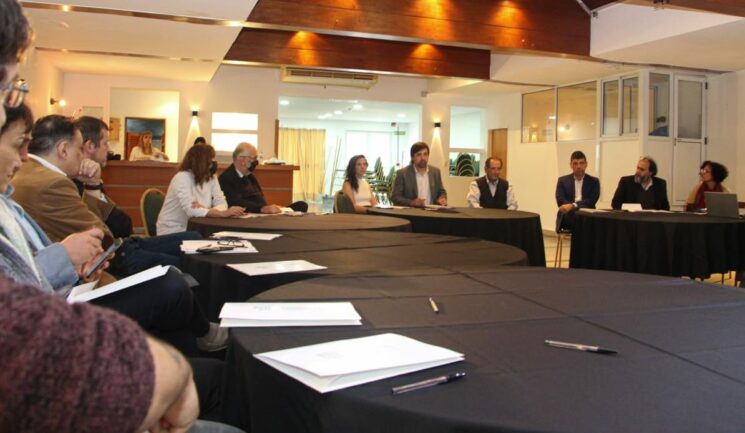Training issues, practices and incentives for future professionals who will work in the health field in Buenos Aires were discussed.
The Minister of Health of Buenos Aires, Nicholas Creblak, today brought together the deans of the faculties of medicine and health sciences of the main universities in the province of Buenos Aires, to work together on the topics of training, internships and residency for future health professionals.
“It is very difficult to think about building public health without getting a perspective from universities. When we talk about health education, we are talking about operations after many years, but there are other processes that can be resolved in the short term and that can be done by the end of the year,” Kreplak said. Regarding the reason for the meeting.
In this sense, he added that “there is a problem in the health system that I want to discuss, which is the health workforce, and for this we have to build a work environment, to analyze hubs and exchange experiences, even those that go beyond management.”
Together with the Undersecretary for Information Management, Leticia Siriani, and the Regional Director of the “Florial Ferrara” School of Government, Mario Roveri, Head of the Regional Health File, they welcomed the academic representatives of the Universities of José C. Paz (UNPAZ). ); Mar del Plata (UNMdP), La Plata (UNLP), Jauretche (UNAJ) from Florencio Varela, National University of Lanús, and also, due to its size and staff contribution to AMBA, the University of Buenos Aires (UBA) participated.
Referring to the health system reform that the government of Buenos Aires is promoting through the ministry responsible for it, Kreplak emphasized that “any reform we do must be thought of on the basis of characteristics, and what the men and women working in the system go for, especially there is a central discussion among doctors, But Argentina has perhaps the largest university system in the world, free and accessible, and this is a key tool to be able to be a mainstay in the transformation.”
“This specificity – as emphasized – may be part of the problem, but it is undoubtedly part of the solution, which is why this meeting with the principal deans of the General Medical Colleges in the Province of Buenos Aires, is necessary to generate state policies that change needs in the short term, but before It’s all over the medium and long term.”
During the meeting, which is one of the lines of action of the Regional Health Conference (COSAPRO), a discussion and exchange table was set up between the health authorities and the attending physicians on issues such as: the choice of residency as a training option, the mandatory final training, and the choice of specialization to be followed by future professionals in the medical field.
Other topics discussed included incentives to enhance professional establishment and retention (eg direct and indirect salary and other benefits), and demographic changes (gender, nationality); And the need to institutionalize the university’s dialogue and services.
The academics present were Gabriela Lacarta of UNPAZ, Adrian Alacino of UNMdP, Ignacio Brusco of UBA, Elena Boschi of Llanes University, Arnaldo Medina and Martin Silberman of Gorrchi, Juan Angel Basualdo Dean of the Faculty of Science, physicians from UNLP and Mauricio Erbin of Exact Sciences from UNLP.

“Social media evangelist. Student. Reader. Troublemaker. Typical introvert.”







More Stories
“Those who go to museums but do not see an oak tree in the countryside should blush.”
Michoacana Science and Engineering Fair 2024, When the Call Ends – El Sol de Zamora
Dr. Miguel Kiwi, winner of the National Science Award, gives his opinion on nanoscience in Chile